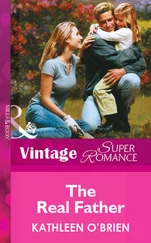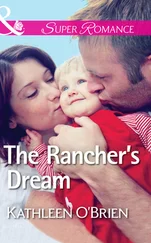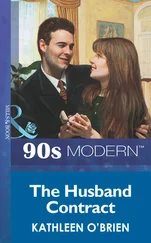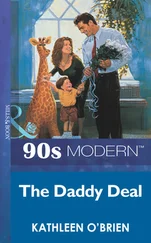“I want you to marry me.”
Kieran recoiled as she spoke. There was no other word for it. He even took a step backward, as if she’d hit him.
“Marry you?”
“Yes. You don’t need to look so stunned. That’s frequently what people do in situations like this.”
“But—” He undid the top button of his shirt, as though he suddenly wasn’t able to get enough air into his lungs. “Those people have relationships. They know each other well, have a history, have plans for a future. They’re usually in—”
“In love.” Her voice cracked, and she tightened her throat to avoid breaking down. “I know. It’s awkward. I wish being in love were a requirement for making babies, but apparently it isn’t. Apparently even people who have an utterly meaningless one-night encounter can still end up pregnant.”
Dear Reader,
If you’re human, it’s impossible to escape being labeled. From the moment the nurses tape your name on your hospital bassinet, you’ve got one—and as life goes on, you'll accumulate more and more. Good child, bad child, smart one, lazy one. Coward, prom king, egghead, jock.
The problem is that labels never fit quite right. Jocks read books; eggheads run marathons. The “good child” stumbles, and the “bad child” helps him up. Each individual is an ever-changing kaleidoscope of often-contradictory traits.
For the sons of Anderson McClintock, an arrogant millionaire with an explosive temper, five ex-wives and a Shenandoah Valley town he called his own, the labels came early in life. And they’ve been almost impossible to shake. Kieran, the Saint. Bryce, the Sinner. And Tyler, the Stranger. Bryce and Tyler got out early, wanting only to escape the eccentric little town of Heyday, their tangled heritage and the smothering labels. Only St. Kieran remained to befriend his difficult father, and to become the struggling town’s official hero.
But sooner or later something always comes along and knocks the halo off the hero. For Kieran, that something is Claire Strickland. Claire may be the only person in Heyday who knows the truth about Kieran—the only person who knows there’s a little bit of sinner in the heart of every saint. Welcome to Heyday—and to the heroes who unexpectedly find love, forgiveness and family here. I hope you enjoy your stay!
Warmly,
Kathleen O'Brien
P.S. I love to hear from readers! Write me at P.O. Box 947633, Maitland, FL, 32794-7633. Or visit my Web site at
KathleenOBrien.net.
The Saint
Kathleen O’Brien
 www.millsandboon.co.uk
www.millsandboon.co.uk
CHAPTER ONE
CHAPTER TWO
CHAPTER THREE
CHAPTER FOUR
CHAPTER FIVE
CHAPTER SIX
CHAPTER SEVEN
CHAPTER EIGHT
CHAPTER NINE
CHAPTER TEN
CHAPTER ELEVEN
CHAPTER TWELVE
CHAPTER THIRTEEN
CHAPTER FOURTEEN
CHAPTER FIFTEEN
CHAPTER SIXTEEN
CHAPTER SEVENTEEN
CHAPTER EIGHTEEN
CHAPTER NINETEEN
CLAIRE HAD ALREADY WARNED Steve six times that he was going to be late, so she bit back the seventh as she heard him come shuffling down the stairs, yawning and scratching his bare chest.
“Morning,” she said, stifling an answering yawn herself. She hated football practice mornings. Five-thirty was just too darn early for human beings to be awake, much less bashing each other around on the football field. The sky outside her kitchen window was still black. She couldn’t even see the apple tree, which was no more than ten feet away.
“Mmlng,” Steve mumbled pleasantly as he entered the kitchen, squinting against the bright overhead light. She wasn’t sure he’d had any sleep at all last night. She’d heard him still up at three, talking on the telephone to Michelle, his new girlfriend. He’d sounded so stupid and sweet she hadn’t had the heart to break it up.
But he’d pay for it today. He wasn’t naturally an early riser. Left to his own devices, like most teenagers, he’d sleep till midafternoon. She yawned again. Once, back when they were kids, they had both loved to sleep late. But she hadn’t had that luxury in years. Not since their mother died.
As Steve slouched into the kitchen, she pulled out his chair, which he promptly used to stash his heavy backpack. He always ate standing up. Even very sleepy seventeen-year-old boys were too full of energy to sit. She felt sorry for his teachers.
“The pancakes are getting cold.” That was really the seventh warning, of course, but it sounded better than “damn it, Steve, step on it, for heaven’s sake,” which was what she wanted to say.
Or did she? Setting a glass of milk on the table, she took a deep breath and tried to find her perspective. Maybe she was just nagging because she was exhausted and resented getting up an hour early to see him off to football practice.
Or maybe she was a little bitter because he still walked and talked and slept like a kid, while she could hardly remember what that kind of freedom felt like.
But that wasn’t fair. Allowing Steve to finish out a normal childhood had been her choice. And besides, she didn’t care if he was late for football practice, anyhow. In fact, if he got booted off the team altogether, it would suit her just fine.
That, however, was about as likely as snow in July. The Heyday High School Fighting Zebras were one win away from the state championship, and Coach McClintock would never risk losing his star quarterback now. Steve could probably show up late, doze off during push-ups and make paper airplanes out of the playbook without causing his coach to bat an eye.
And the little rascal knew it, too. She watched him pull a grungy T-shirt over his head, his curly brown hair emerging from the neckline even more tousled than before, if that was possible. Aware of her disapproving scrutiny, he grinned and ran his fingers through it.
“Sorry, officer,” he said. “I didn’t know the hair police would be here. I left my comb upstairs.”
He was waking up, she saw. And, as usual, waking up sassy. He was so damn cute, that was his problem. She reached out and yanked the curl that dangled farthest down his broad forehead.
“Ouch,” he said. But he didn’t mean it.
Standing close to him like this, she realized he was wearing a ton of cologne. He smelled as if he’d bathed in the stuff. It seemed odd, given that he was headed out to run around in the mud, until she remembered that Michelle sometimes stopped by the football field to sneak in a few quick kisses before practice.
“The pancakes,” she repeated slowly, as if he didn’t speak good English, “are getting cold.”
“Yum.” Steve grabbed the top one off the stack and, holding it in his big fist, munched on it as if it were a piece of dry toast. “I love cold pancakes.”
She turned back to the stove, hiding her smile. He probably did. He loved everything. He’d probably eat the box the pancake mix had come in, which was a good thing, because she hadn’t ever learned to cook very well.
“So did you finish your English paper?”
The silence that followed her question was ominous. She could hear Steve chewing earnestly, and when she looked, he was studying the front page of the newspaper as if he held a doctorate in foreign affairs.
“Oh, Steve, no. No. Don’t tell me you didn’t write your paper. You promised that if I let you stay out—”
“I wrote it.” He gave her a look. “I did. I wrote it.” He grabbed another pancake. “I just didn’t print it. I’m out of ink.”
She managed, once again, to hold back her exasperated response. She had to be careful. She didn’t want to become the enemy here. The two of them had always been close, even before their mother died. After the accident, they’d become even closer, a tight team, as if they understood it was just the two of them now, two of them against the whole world.
Читать дальше

 www.millsandboon.co.uk
www.millsandboon.co.uk










